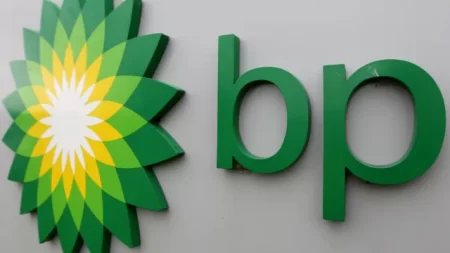
Oscarline Onwuemenyi
24 June 2017, Sweetcrude, Abuja – A number of Civil Society Organisations (CSOs)have kicked against the Petroleum Industry Governance Bill recently passed by the Senate, saying it failed to adequately address environment issues and rights of host communities.
The CSOs, coordinated by the Social Development Integrated Centre (Social Action), kicked against the PIGB at a news conference in Abuja.
The participants included Civil Society Legislative Advocacy Centre; Zero Corruption Coalition; Socialist Workers League; Global Rescue Mission; and Keen and Care I.
The Director, Social Action, Dr. Isaac Asume-Osuoka, who read the text of the briefing, accused the National Assembly, specifically the Senate, of an “attempt to legalise the appropriation of national oil and gas assets to some powerful private interests.”
The CSOs argued that the creation of new institutions by the bill without first making adequate provisions for their operations did not make sense.
They noted that, “Specifically, the ill-advised separation of a hitherto comprehensive bill into bits has created a sufficient setback to a holistic and more effective effort to revamp the oil sector in Nigeria for the benefit of citizens.
“On the provisions of the bill proper, it is strange that the Senate is swift to create new institutions in the industry, including the National Oil Company, the Nigeria Petroleum Assets Management Company, the National Petroleum Regulatory Commission, the Ministry of Petroleum Incorporated, and the Petroleum Equalisation Fund etc, without first creating the enabling environment on which these entities will thrive.
“The vacuum of the non-effective and clear-cut provision(s) for health, safety and environment in the bill is disturbing and lamentable.”
They added that most of the provisions of the PIGB were different from the original Petroleum Industry Bill, which they said created more room for independence.
“The original PIB had made it clear that the Ministry of Environment shall have overriding authority on environmental matters. This neutrality and independence was necessary to appropriately enforce environmental regulations.
“Worryingly, in the PIGB, all provisions giving the Federal Ministry of Environment powers on environmental issues were struck out. By so doing, the Senate is causing the country to lose out on the opportunity of a new legislation to correct the lapses in our regulation of environmental issues in the petroleum sector.
“The logical consequence of this line of action is the exacerbation of environmental crisis and conflicts in Nigeria. We call on the National Assembly to promptly return to the 2015 version of the PIB as regards to the environment as it has clear and effective environmental protection provisions and regulations for the petroleum industry,” they stated.
While the Senate had already passed the bill for the third reading, the House of Representatives passed it for the second reading before lawmakers proceeded on vacation last week.
The House also passed two other components of oil and gas industry bills for second reading, though they would all later be harmonised as a single oil and gas industry law.
The CSOs, coordinated by the Social Development Integrated Centre (Social Action), kicked against the PIGB at a news conference in Abuja.
The participants included Civil Society Legislative Advocacy Centre; Zero Corruption Coalition; Socialist Workers League; Global Rescue Mission; and Keen and Care I.
The Director, Social Action, Dr. Isaac Asume-Osuoka, who read the text of the briefing, accused the National Assembly, specifically the Senate, of an “attempt to legalise the appropriation of national oil and gas assets to some powerful private interests.”
The CSOs argued that the creation of new institutions by the bill without first making adequate provisions for their operations did not make sense.
They noted that, “Specifically, the ill-advised separation of a hitherto comprehensive bill into bits has created a sufficient setback to a holistic and more effective effort to revamp the oil sector in Nigeria for the benefit of citizens.
“On the provisions of the bill proper, it is strange that the Senate is swift to create new institutions in the industry, including the National Oil Company, the Nigeria Petroleum Assets Management Company, the National Petroleum Regulatory Commission, the Ministry of Petroleum Incorporated, and the Petroleum Equalisation Fund etc, without first creating the enabling environment on which these entities will thrive.
“The vacuum of the non-effective and clear-cut provision(s) for health, safety and environment in the bill is disturbing and lamentable.”
They added that most of the provisions of the PIGB were different from the original Petroleum Industry Bill, which they said created more room for independence.
“The original PIB had made it clear that the Ministry of Environment shall have overriding authority on environmental matters. This neutrality and independence was necessary to appropriately enforce environmental regulations.
“Worryingly, in the PIGB, all provisions giving the Federal Ministry of Environment powers on environmental issues were struck out. By so doing, the Senate is causing the country to lose out on the opportunity of a new legislation to correct the lapses in our regulation of environmental issues in the petroleum sector.
“The logical consequence of this line of action is the exacerbation of environmental crisis and conflicts in Nigeria. We call on the National Assembly to promptly return to the 2015 version of the PIB as regards to the environment as it has clear and effective environmental protection provisions and regulations for the petroleum industry,” they stated.



